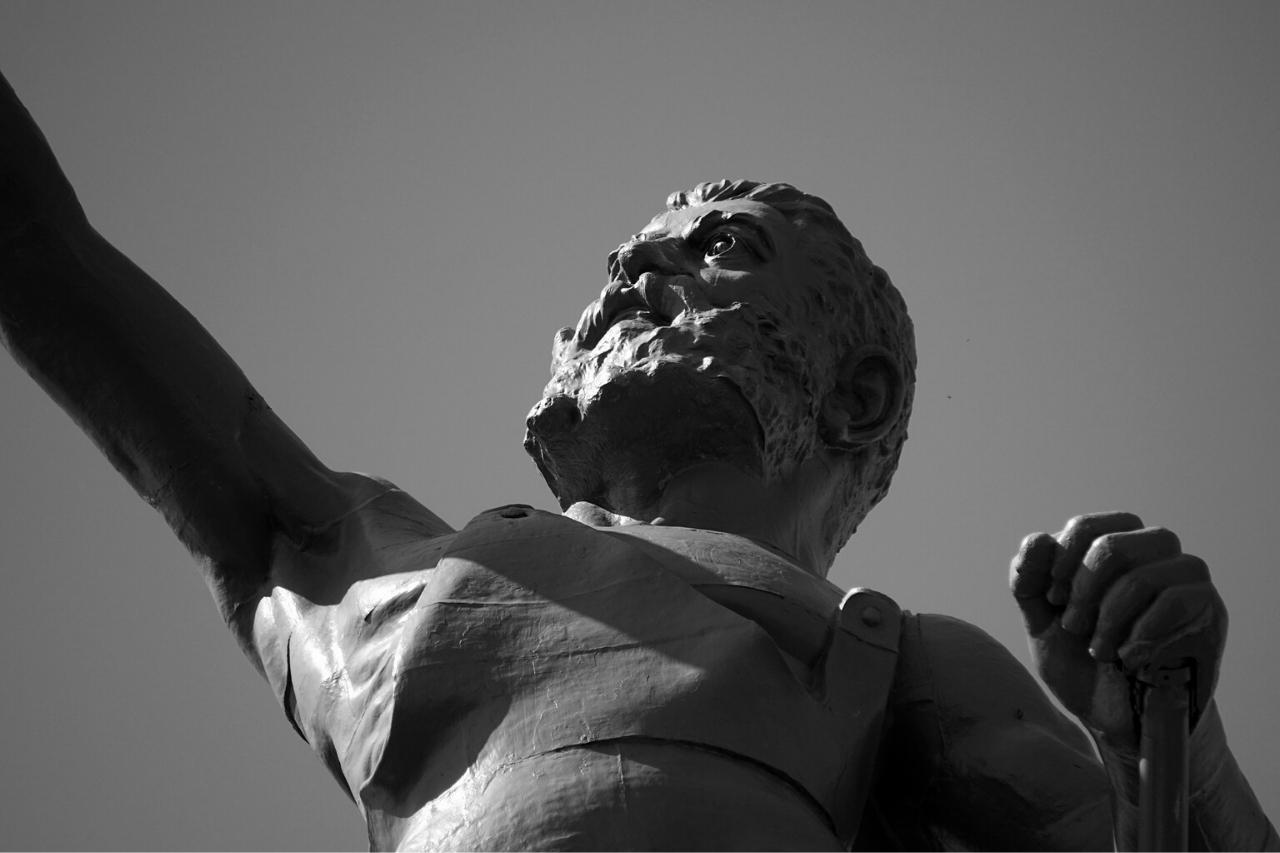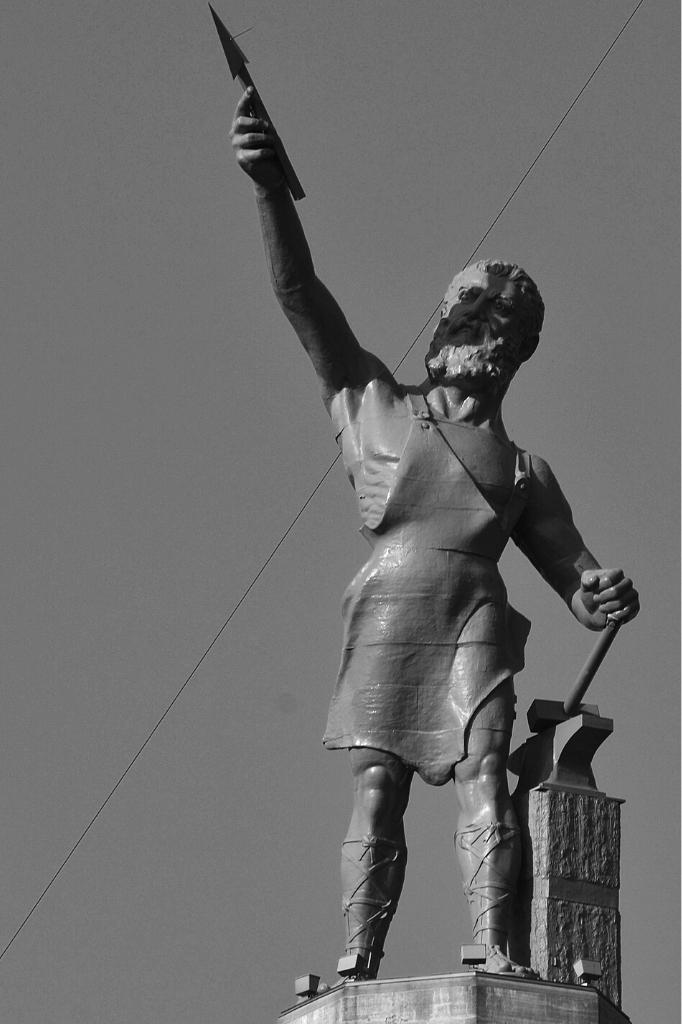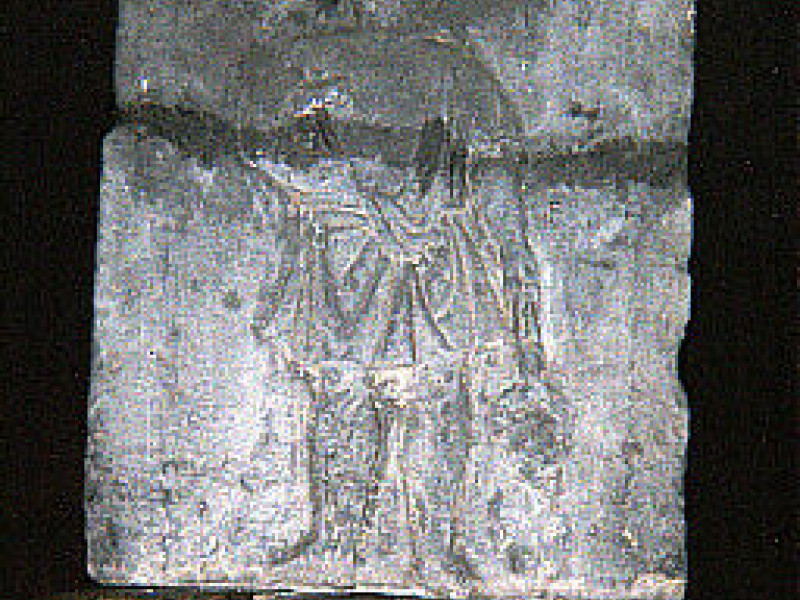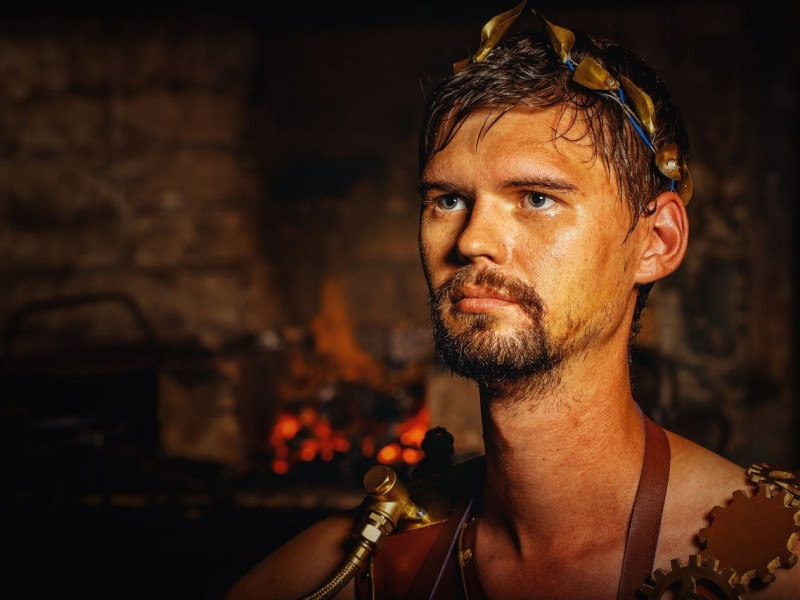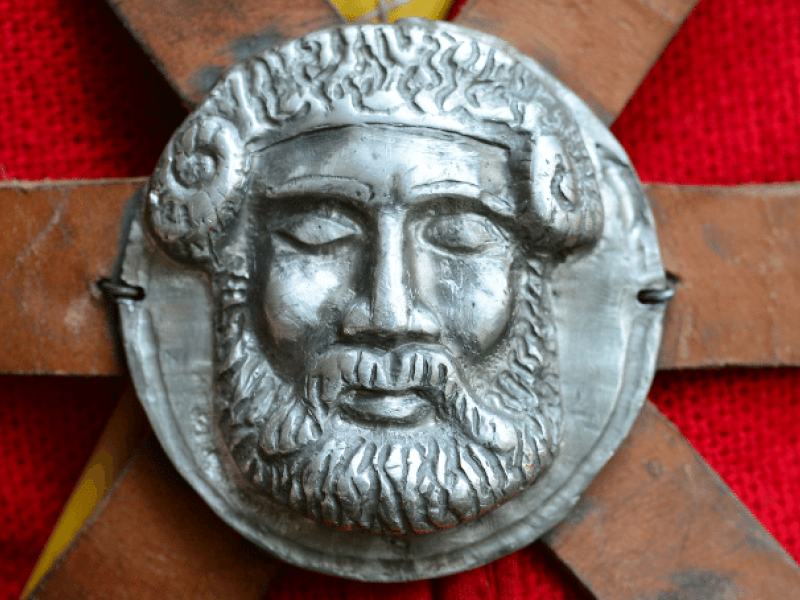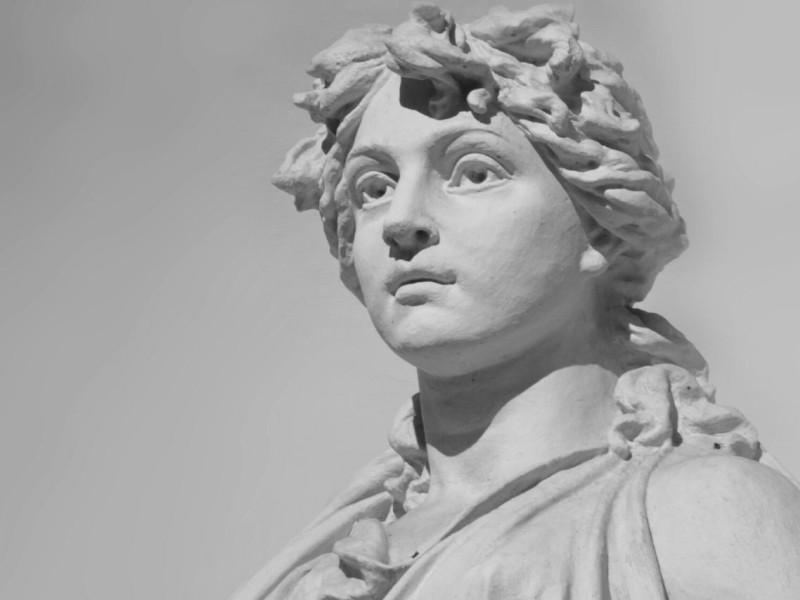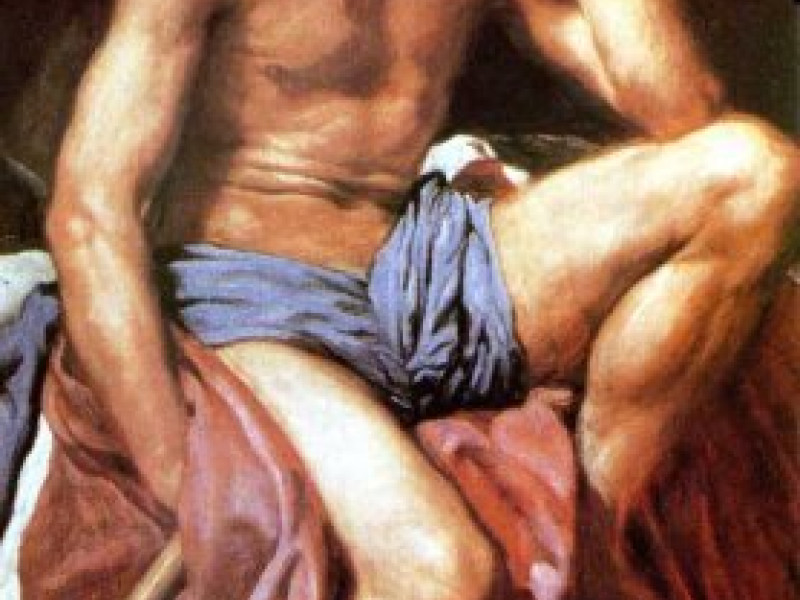Vulcan
Vulcan | The God of Fire and the Forge
Vulcan, god of fire and forge, was the ugliest god in Roman mythology. He has rather a sad history, starting with hatred from his mother.
However, Vulcan was a skilled blacksmith, and so he was the patron of smiths and artisans.
Read on to find out how this volcano-dwelling god became the best in the business but still had Mommy issues.
Who Was Vulcan in Roman Mythology?
Vulcan was both the Roman god of fire and the forge. He was one of the four children of Juno and Jupiter and was the Roman version of Hephaestus. Unfortunately, he was an ugly, deformed child, which brought on the wrath of his mother. That would be the cause of the rest of Vulcan’s problems.
Despite his sad beginnings, Vulcan’s powers lay within the forge. He became a skilled craftsman, which helped him stand out amongst the gods, despite his ugliness and deformity. He was raised near a volcano, and Vulcan’s forge was located underneath the volcano, hence the name “Vulcan.”
He was adapted from an Etruscan god whose name was Sethlans. Later, his stories and attributes became exactly the same as those of Hephaestus, the Greek god of the forge. Even though it made Juno unhappy, Vulcan went on to play a major role in Roman mythology. He even held a place in the Dii Consentes, one of the twelve main deities of the Romans.
How Was Vulcan Born: Mythological Origin of Volcano
Vulcan was one of the four children of Jupiter and Juno (shockingly born in wedlock!). His siblings were Mars, Bellona, and Juventas. After Vulcan was born, he was very red-faced and surly, and Juno didn’t like it. She thought he was too ugly, so she threw him down from the top of Mount Etna, the largest active volcano in Europe.
He hurt his leg, and it became deformed, increasing his ugliness. After his fall, his mother left him to be raised by nymphs. He spent his time by the sea and at the base of the volcano. One day, he found a lump of warm coal, and he was fascinated by it. It kept his attention so much so that he put the coal into a clamshell and took it home, watching it.
He became skilled in the ways of the fire after practicing with the coals that he found. Unfortunately, because of his sad birth, he was an angry child and grew into an even angrier man. He kept to himself and was known basically as the ugly god who was a skilled blacksmith. He proved himself useful to different gods, but he also enjoyed getting revenge.
Myths of the Roman God of Fire
Vulcan grew up in the shadow of a volcano. It makes sense that he was able to use the power of the volcano to create beautiful tools and jewelry. He eventually was the one who created Jupiter’s scepter as well as his lightning bolts. He also created Mercury’s metal winged helmet, which helped his half-brother deliver his messages.
Vulcan’s Blacksmith Beginnings
As Vulcan grew in his skill with smithing, he tried to make all kinds of things. He made silverware, tools, and jewelry. He even made a beautiful silver and sapphire necklace for his foster mother, Thetis, who was a nymph. Thetis went to a dinner party, and it was there that she met Juno.
Juno was impressed with the necklace, and she asked Thetis where she got it. Thetis told her, and Juno was furious. She didn’t like that the son she’d rejected had become a very talented craftsman.
Vulcan and Minerva
Vulcan’s half-sister had a rather interesting birth story, unlike her brother. While still in her mother’s womb, she had been swallowed by her father, Jupiter. Jupiter was afraid that he would be overthrown in the same way that he had overthrown his own father. But both Minerva and her mother were not to be defeated. They gave Jupiter terrible headaches.
These headaches ailed Jupiter so that he called upon his son Vulcan to assist him. Vulcan came to his father’s head, bringing with him an ax and tongs that he had created in the fire. He used the ax to cut open his father’s head and the tongs to pull Minerva out. She was full-grown, dressed in armor.
Some stories state that Vulcan fell in love with her immediately. However, Minerva was known as a virgin goddess, and she rejected his overtures.
Vulcan and Venus
Even though one could not find two more opposite gods, Vulcan and Venus were married. Vulcan was the ugliest god, and Venus was the goddess of beauty, love, and sex.
Unfortunately, the marriage was not a happy one, and from the stories, we more or less know that it was a sexless one. Because of this, Venus sought love and sex elsewhere, but it vexed Vulcan whenever she did so.
Among her lovers were Mercury and Mars. Mars was Vulcan’s full brother, and Mercury was his half-brother. One day, Mercury found Mars and Venus together in bed, and he flew away to go and tell Vulcan what he saw. Vulcan was so angry that he caused sparks to fly from Mt. Etna, and he created a plan of revenge.
He didn’t go and call out the lovers just yet. Instead, he hatched a plan, and he wanted to enact it. He built a net that was almost invisible to the human eye, and he laid it over the bed. The next time that Venus and Mars went to bed together, they were caught. Vulcan called the other gods to come and look upon their humiliation.
Vulcan, Pandora, and Revenge
Vulcan was the god of fire, and eventually, mankind stole this secret of fire, so Jupiter set out to punish them. Prometheus was the Titan who gave the secret away.
Jupiter thought that mankind should receive a poisoned gift because of their thievery. Vulcan had an idea, and he created Pandora out of clay. She was technically the first human woman.
She married a Titan, and then she was given a box as a gift for mankind. The box had all sorts of terrible things like disease, misfortune, etc., inside of it. She was told not to open it, yet her curiosity overtook her.
She opened it, spreading all the evil and misfortune throughout the world. When she closed it, there was one thing left inside–hope.
Mother Issues: Vulcan and Juno
His own mother threw him over the side of the mountain because she didn’t like the way he looked. Understandably so, Vulcan had some mother problems. He planned his revenge, and he used his skill as a blacksmith to execute it. One day, he created a special kind of chair, made out of silver, gold, and pearl.
However, this chair had a special mechanism that would trap whoever sat on it. Juno accepted the chair, and instantly got caught when she sat on it. She screamed and tried to fight, but the chair only held her tighter. Vulcan kept her trapped for three days, and she couldn’t do anything; the chair’s grip was so tight.
Vulcan had one request. He would release his mother if she would make the beautiful Venus his wife. Jupiter got involved, since he was the god who could command the others, and he agreed.
Dionysus came, got Vulcan drunk, and brought him back to his parents. They agreed to the plan, and they gave Venus in marriage and released Juno at the same time.
Vulcan God Symbol and Artwork
Vulcan was the patron of blacksmiths. So his symbols were tools related to smithing: hammer, tongs, a forge. He was also deformed. So in art, he might appear less than perfect, compared with the other gods. He also was ugly as opposed to the beautiful gods; artists might have attempted to make him appear unattractive.
Because of his skills in the forge, he might also appear in artwork with the items that he created. These included Zeus’ lightning bolts, an ax, and Mercury’s winged helmet.
Worship of Vulcan, the God of the Forge
A shrine named “Volcanol” was built to Vulcan in the 8th century BC. Additionally, the temple of Vulcan could be found in Rome.
There was one festival set aside for Vulcan, and it was called Vulcanalia. It took place on August 23, and the people would light candles and fires. They would throw fish and other animals in the fire to keep away wildfires during the dry season.
Vulcan Today: His Burning Legacy
Vulcan is surprisingly quite well-remembered. Or perhaps it was more his name rather than his personality. One can see this name in Star Trek, where Vulcan is the name of the planet of a certain extraterrestrial race. Think Spock.
You can also see Vulcan’s name in the word volcano as well as in “vulcanized rubber,” which is the practice of hardening rubber. There is also a statue of Vulcan in Birmingham, Alabama, which happens to be the largest cast-iron statue in the world.
Conclusion
Vulcan was the ugliest and maybe the angriest god but for good reason. Let’s sum up the main points we covered about him in this article:
Vulcan was the Roman god of the forge and fire mythology
He was deformed and ugly, and he is the Roman version of Hephaestus
After he was born, Juno thought he was too ugly, and so she threw him down from Mt. Etna
He fell and broke his legs, making him lame and much less desirable
At the base of the mountain, he became a skilled craftsman after he became fascinated with fire, but he held a grudge against his mother throughout his life
He made a necklace for his foster mother, and she wore it to a dinner where Juno was in attendance
Juno wondered where she got it from, and she found out that her ugly son that she’d rejected made it, and she was furious
He eventually made other things like Jupiter’s lightning bolts and Mercury’s metal winged helmet
Vulcan helped ease his father Jupiter’s headaches by using an ax to split open his head. Minerva came out, and Vulcan fell in love with her, but she rejected him
Vulcan sent his mother a trick chair that would trap her whenever she sat in it. She got caught for three days, and the only way she could get out was to give Venus in marriage to Vulcan
It was agreed, and they married, but it was not a happy marriage, and Venus had many affairs
One day, Mercury found Venus and Mars in bed, and so Vulcan devised a trap for the next time they were in bed
When it happened, all the gods came to laugh at them
The humans stole the secret of fire from the gods, and Jupiter wanted to punish them. Vulcan made Pandora from clay, and she opened a box with all the horrible things that descended upon mankind
Vulcan had a festival dedicated to him called Vulcanalia. It took place on August 23, and people would light fires and put fish and animals into the fire to help the god keep away dangerous wildfires
Vulcan is remembered today for the name of the planet in Star Trek
Vulcan was the god of fire and the forge in Roman mythology, and he was the Roman version of Hephaestus. He was the ugliest god, and despite his skills, he was probably the most scorned of the gods.
Even his wife didn’t love him and couldn’t stand to be around him. And yet, he has the story of overcoming the past and pushing forward against all odds. His mother hated him from the beginning, shunning him from her family, but in the end, he had his revenge, and he is the representation of strength, renewal, and putting the past behind us.
